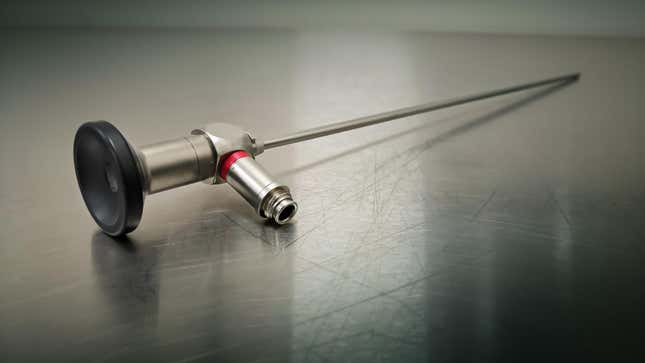
Colonoscopies are no fun.Prepping for oneincludes a full day of eating nothing butliquidand laxatives, with thegoalof emptying everything out of your bowels in under 24 hours. Then, once your guts are completely empty, you’resedatedso thatdoctors can stick a flexible camera up your rear to take imagesof your anatomy that normally would never, ever see the light of day.
As unpleasant as the experience is, colonoscopies are a hugely valuable tool in catching colon and rectal cancers earlier, when treatment is far more effective. Given that colorectal cancers are thefourth-leading cause of cancer deathsin the United States, catching it earlierthan later is hugely important.
Colon cancers in young people are on the rise
In 2010,5% of colon cancers and 9% percent of rectal cancerswere in patients younger than 50. In 2020, these numbers have risen to include 11% of colon cancers and 15% of rectal cancers being found in patients younger than 50. Doctors still don’t know why these numbers are rising, but it’sconcerning, especially since these are slow-growing cancers that, if caught early enough, are very treatable.
Given that thesurvival rates for these cancersare much better the earlier they are caught, there’s beenarecent change in the screening guidelines. Now, instead of scheduling your first colonoscopy at 50, they’rerecommending starting at age 45.
不同类型的结肠cancer screenings
You may have heard about other ways ofscreening for colon cancer,就像stool tests. As of right now, there arethree approved stool tests, which work by detecting components of hemoglobin, or antibodies to hemoglobin, along with certain DNA biomarkers.These tests areuseful, but theycan’t quite replace colonoscopies, though,as the stool tests need to be done every few yearsand are known to generate false positives. If you do have a positive result on a stool test, then the next step will be to get a colonoscopy,anyway.
The big advantage of doing a regularly scheduled colonoscopy is that they only need to be done every ten years. If doctors do find apolyp, which are slow-growing clumps of cells that, over time, can develop into colon cancer, they can also often be removed during the procedure itself. Given that 40% of adults over the age of 50 have polyps, there’s a pretty reasonable chance that at some point down the road, you may need to have some removed as well.
